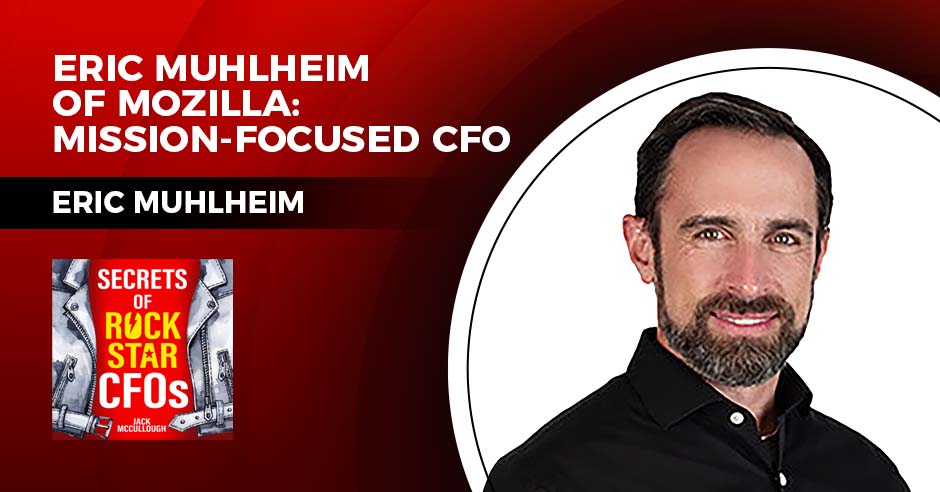Automation, artificial intelligence—and a greater focus on strategic analysis—can “revolutionize” the finance function, says Adriana Carpenter, CFO of Emburse, a Los Angeles-based tech firm. Carpenter spoke with StrategicCFO360 about how finance professionals can become better strategic business partners, the best balance of analysis and data compilation, and why sustainability is becoming the purview of the finance chief.
Can you really “revolutionize” finance? What does that mean?
While it may seem counterintuitive, yes you absolutely can revolutionize finance. As CFOs we are strategic partners to the CEO and others on the executive team. It’s our responsibility to provide information and recommendations that keep our organizations thriving. To do that, finance professionals should provide 80 percent analysis and 20 percent compilation of data—however, most companies are the opposite. By flipping that script you can create strategic change in finance.
You can write a new script by merging data from multiple areas of the company and enabling new technologies such as artificial intelligence and machine learning. These tools can truly transform how finance is accessed and data interpreted, giving you higher quality information and help you develop better predictive analytics, which can lead to better business decisions and higher ROI.
If automation is what’s at the heart of changing the CFO office, what can companies do to prepare?
We have found that the finance department often is the last area automated in a business. However, the pandemic changed everything including the way finances are evaluated and processed.
To be successful in the world of finance automation, I believe you first need to have a vision for where you want to be and to understand that data is critical to success. From there, you can build and implement a plan to transform that data into actionable information.
For example, if your company has issues managing spend, you may have a plan that includes steps to identify the areas where you have the largest spend. Once identified, ask yourself what can be automated? What can be changed? Can anything be eliminated? And keep asking questions until you drill down to what you need.
You need to find a champion from your department to collaborate with IT and your business partners. That person needs to be able to see across departments and understand the unique language and processes they have. Review your spend policies and ensure they still reflect your business’s priorities and that they are clearly communicated to employees.
Map out all of the processes, including payment reimbursement, reconciliation and approvals, and identify what can be automated. Ensure you can articulate what is done at each step in the process. Research and choose the systems and platforms that best support your processes and the business outcomes you need. Leverage the power of new technology such as artificial intelligence, machine learning and robotics to drive your process automation and analytics.
Once all of that is complete, go back and review what you’ve accomplished. Look for areas that can be improved or where additional changes are needed. One final note that I want to stress, if you’re not enabling AI/ML, then you’re missing a huge opportunity to take your digital transformation to the next level. It’s this technology that powers valuable insights into trends within your data and allows finance employees and others to convert them into actionable steps.
Drilling down further, how will employees be impacted?
You can see I’m a big proponent of process automation, AI/ML and technology in general to transform the finance department and all those who are attached to it. It’s because without it, you can’t get quality analytics that drive actionable insight—not only financial insights but also insights that can help you track your environmental and social impact as well adjust your corporate governance as needed. The bottom line is that tech isn’t just data and finance, it enables companies to be more mindful of employee well-being and societal needs.
What advice do you have for the next generation? How can they prepare for the CFO office?
The future of the CFO office is a marriage of data and technology that will transform businesses across industries. Less concerned with retrospective number crunching, modern finance teams are emerging as strategic business partners, using data and innovative technologies to uncover value, drive growth and define new ways of working across the entire organization.
And as modern finance departments replace legacy, manual systems and processes with workflows powered by cloud, artificial intelligence and automation, the next generation must embrace agile approaches to finance operations.
They must also be able to think two to three years ahead and plan for a future that supports quality, accurate and actionable data that enables continuous improvement and innovation. What was once a career based primarily on managing finances is so much more.
One of those “more” elements will be sustainability. Previously thought of as falling under the umbrella of corporate social responsibility, CFOs will be increasingly called upon to offer ideas that help businesses set policy goals around sustainability or local purchasing. It will no longer be the bottom line, but the triple bottom line.








